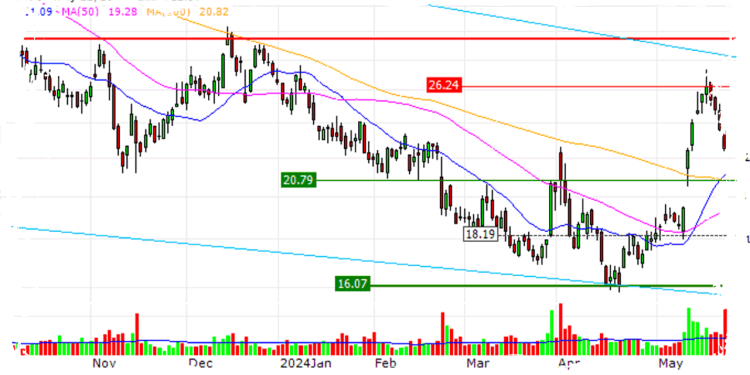A new blood test to detect colon and rectal cancer has been recommended for approval by a panel of U.S. Food and Drug Administration (FDA) advisers on Thursday. Despite concerns about the test’s accuracy, the panel still gave its recommendation.
California-based biotechnology company, Guardant Health, has recently submitted an application to the FDA seeking approval for its innovative blood test called Shield. This groundbreaking test aims to detect early indications of colorectal cancer, providing individuals with a reliable and non-invasive screening method.
The FDA advisory panel has given their vote on the safety, effectiveness, and benefits of the test. The panel voted 8-1 in favor of the test being safe for individuals who meet the testing criteria. Additionally, they voted 6-3 in favor of the test being effective and 7-2 in favor of the benefits of the test outweighing the risks.
Panelists expressed their concerns about the accuracy of Shield compared to colonoscopy screening.
In a groundbreaking study involving nearly 8,000 patients, Shield successfully identified 83% of colorectal cancer cases. Remarkably, the test demonstrated an 88% accuracy rate in detecting stage I, II, or III colorectal cancer, while also detecting approximately 13% of potentially dangerous precancerous adenomas. This research holds significant promise for improving early detection and treatment options for colorectal cancer patients.
The FDA reported that Exact’s stool-based Cologuard test achieved a sensitivity rate of 92.3%.
Dr. Sean Spencer, one of the panelists, expressed his support for advancing Shield, stating that testing should be utilized to detect colon cancer in asymptomatic individuals.
According to Spencer, it is crucial for the labeling to clearly state that the test is not intended for detecting adenomas and should not be considered as a preventive measure.
According to Dr. William Brugge, a member of the panel, although he believes that the test is safe, he questions its effectiveness.
Dr. Brugge expressed his concern about the effectiveness of Shield as a screening test for colon cancer. He believes that there are other tests available that are superior in detecting this disease.
The FDA will review the panel discussions and voting outcomes to determine whether or not to approve the test.
Shield could potentially become the second blood-based test for colon cancer in the United States, following in the footsteps of Epigenomics’ Epi proColon, which gained approval back in 2016.
According to Dr. Craig Eagle, the chief medical officer at Guardant Health, this blood-based test for colorectal cancer would be the first of its kind to meet the eligibility requirements for Medicare reimbursement.
Colonoscopy is widely regarded as the most precise method for detecting colorectal cancer. Unlike a blood test, it has the ability to identify lesions or polyps in the colon or rectum. Despite its effectiveness, many individuals opt out of screening due to the invasive nature of the procedure.
According to Robert Smith, senior vice president of early cancer detection science at the American Cancer Society, blood-based tests such as Shield by Guardant Health have the potential to greatly decrease the occurrence of advanced cancer cases, despite having a lower detection rate.
According to an expert, there is a desire for a more accurate blood-based option in detecting precursor lesions and cancers. However, what makes colorectal cancer screening unique is that individuals differ in their willingness to undergo specific tests. Therefore, it is important to provide people with choices when it comes to screening options.
According to Charity Morgan, a biostatistics professor at the University of Alabama, Birmingham, the test is a valuable option for patients who have no other alternatives. However, it should not be considered as a substitute for a colonoscopy.
Guardant claims that its test, despite having a lower detection rate, can still effectively identify dangerous polyps due to its ease of use and frequent application.
Every year, approximately 150,000 Americans receive a diagnosis of colon and rectal cancers, with a staggering one-third of these cases projected to result in fatality.
In a CNN opinion piece published in March, Dr. Jamin Brahmbhatt, a urologist and robotic surgeon at Orlando Health, highlighted the concerning fact that only about 60% of eligible individuals keep up with the recommended cancer screenings.
Brahmbatt expressed optimism about the potential impact of blood-based tests on colorectal cancer screening. He mentioned that once these tests are approved by the U.S. Food and Drug Administration, they could lead to an increase in the number of people getting screened for this type of cancer.










